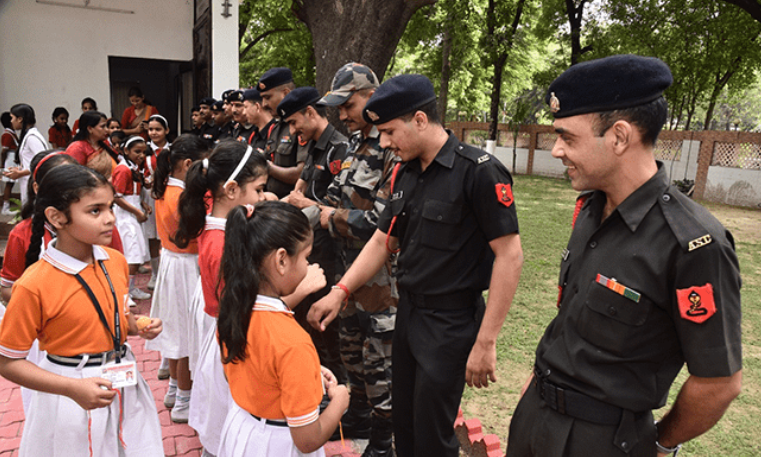
(New York) – Indian authorities are restricting free expression, peaceful assembly, and other basic rights in Jammu and Kashmir three years after revoking the region’s special autonomous status, Human Rights Watch said today. The government’s repressive policies and failure to investigate and prosecute alleged security force abuses have increased insecurity among Kashmiris.
On August 5, 2019, the Indian government, promising security and reform, revoked the constitutional autonomy of Jammu and Kashmir and split the state into two federally governed territories. The government action was accompanied by serious rights violations including arbitrary detention of hundreds of people, a total communications blackout, and severe restrictions on freedom of movement and peaceful assembly. Since then, the authorities have released many of the detainees and restored the internet, but have intensified their crackdown on media and civil society groups, including through frequent use of counterterrorism and public safety laws.
“Three years after the government revoked Jammu and Kashmir’s constitutional status, the Indian authorities appear to be more concerned with projecting an image of normalcy than ensuring rights and accountability,” said Meenakshi Ganguly, South Asia director at Human Rights Watch. “The government needs to end the assault on fundamental freedoms and act to protect minority groups at risk.”
The authorities have invoked the Jammu and Kashmir Public Safety Act, as well as terrorism allegations, to conduct raids and arbitrarily detain journalists, activists, and political leaders without evidence and meaningful judicial review. The authorities have also barred several prominent Kashmiris from traveling abroad without providing reasons. Since August 2019, militants have killed at least 118 civilians, including 21 people from minority Hindu and Sikh communities.
In November 2021, the authorities arrested a prominent Kashmiri human rights activist, Khurram Parvez, on politically motivated charges under the abusive counterterrorism law, the Unlawful Activities Prevention Act (UAPA). Parvez, 44, is the program coordinator of the Jammu and Kashmir Coalition of Civil Society and the chair of the Asian Federation Against Involuntary Disappearances. He has documented cases of enforced disappearances and investigated unmarked graves in Kashmir, and as a result, the Indian authorities have repeatedly targeted him for his human rights work.
United Nations human rights experts, calling for his immediate release, expressed “regret that the Government continues to use the UAPA as a means of coercion to restrict civil society’s, the media’s and human rights defenders’ fundamental freedoms.”
Journalists in Kashmir face increasing harassment by security forces, including raids and arbitrary arrests on terrorism charges. Authorities in India have shut down the internet more often than anywhere else in the world. A majority of those shutdowns have been in Kashmir, where they are used to curb protests and access to information.
Since August 2019, at least 35 journalists in Kashmir have faced police interrogation, raids, threats, physical assault, restrictions on freedom of movement, or fabricated criminal cases for their reporting. In June 2020, the government announced a new media policy that made it easier for the authorities to censor news in the region. In 2022, the authorities rearrested Fahad Shah, Aasif Sultan, and Sajad Gul under the Public Safety Act after they had been granted bail separately in other cases filed against them in retaliation for their journalism work.
Since 2019, the security forces have been implicated in numerous abuses including routine harassment and ill-treatment at checkpoints, arbitrary detention, and extrajudicial killings. In March 2021, five UN expert mandates wrote to the Indian government seeking information about the detention of a Kashmiri politician, Waheed Para; the alleged killing in custody of a shopkeeper, Irfan Ahmad Dar; and the enforced disappearance of Naseer Ahmad Wani, a resident of Shopian district. They raised concerns about “the repressive measures and broader pattern of systematic infringements of fundamental rights used against the local population, as well as of intimidations, searches, and confiscations committed by national security agents.”
This story was originally published in hrw.org . Read the full story here






